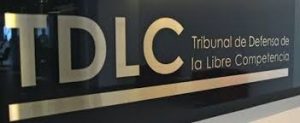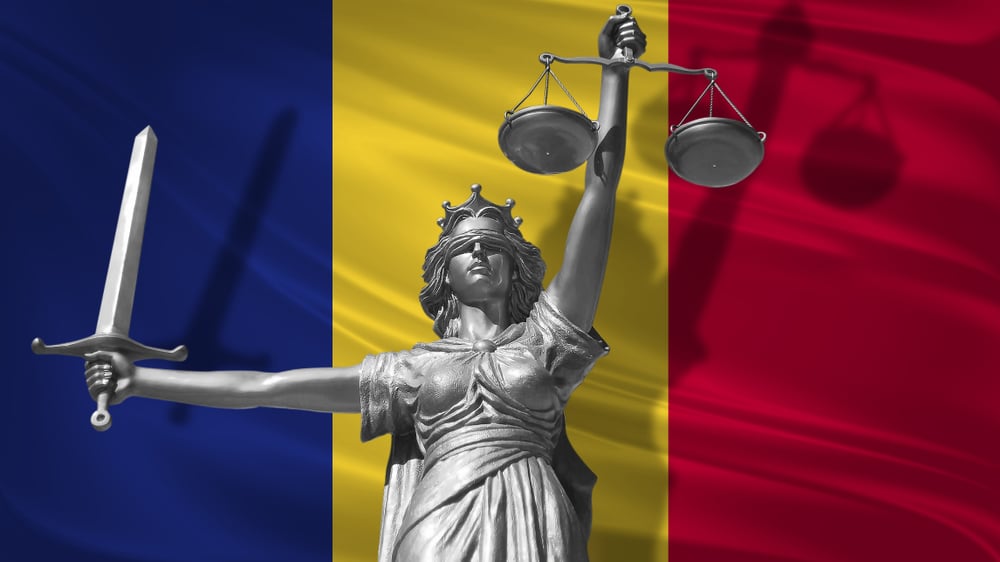Following the ruling by Chile’s supreme court that a bank can legally close accounts of a crypto exchange, the country’s Court of Defense of Free Competition reaffirmed that banks must reopen crypto exchanges’ accounts. The Chilean antitrust court continues to hear the case alleging that banks exploit their dominant position to keep crypto exchanges off the market.
Also read: Indian Supreme Court Moves Crypto Hearing, Community Calls for Positive Regulations
 Chile’s Court of Defense of Free Competition (TDLC) rejected banks’ request on Wednesday to vacate its injunction that forced them to keep accounts of crypto exchanges open. Their request was “based on the ruling of the supreme court, issued in early December, which determined that the closure of an account of [crypto exchange] Orionx by Bancoestado was legal,” La Tercera publication wrote. Dario Financiero news outlet elaborated:
Chile’s Court of Defense of Free Competition (TDLC) rejected banks’ request on Wednesday to vacate its injunction that forced them to keep accounts of crypto exchanges open. Their request was “based on the ruling of the supreme court, issued in early December, which determined that the closure of an account of [crypto exchange] Orionx by Bancoestado was legal,” La Tercera publication wrote. Dario Financiero news outlet elaborated:
The TDLC noted in its resolution that the ruling of the country’s highest court ‘does not constitute a new precedent that will change the resolution.’
 Martín Jofré, the CEO of crypto exchange Criptomkt, commented after the ruling: “For us, it is a success since we need bank accounts to operate in the market. In any case, we always rely on Chilean institutions, especially on the TDLC for its role as defender of free competition.”
Martín Jofré, the CEO of crypto exchange Criptomkt, commented after the ruling: “For us, it is a success since we need bank accounts to operate in the market. In any case, we always rely on Chilean institutions, especially on the TDLC for its role as defender of free competition.”
 Cryptocurrency exchanges filed a lawsuit with the TDLC against 10 major banks in Chile last year, accusing them of abusing their dominant position after they unilaterally decided to close their accounts. The TDLC then ordered banks to reopen accounts of the exchanges for the duration of the trial.
Cryptocurrency exchanges filed a lawsuit with the TDLC against 10 major banks in Chile last year, accusing them of abusing their dominant position after they unilaterally decided to close their accounts. The TDLC then ordered banks to reopen accounts of the exchanges for the duration of the trial.
Bancoestado and Itau took the case to the country’s supreme court which subsequently ruled that the banks can legally close accounts of a crypto exchange. With the supreme court’s validation, the two banks asked the TDLC to cancel its order for them to reopen accounts of the exchanges.
 “The resolution of the court [TDLC] seems completely legally sound to us,” lawyer Samuel Cañas, representing local crypto exchange Buda.com, was quoted by Dario Financiero as saying after the TDLC ruled on Wednesday.
“The resolution of the court [TDLC] seems completely legally sound to us,” lawyer Samuel Cañas, representing local crypto exchange Buda.com, was quoted by Dario Financiero as saying after the TDLC ruled on Wednesday.
 “On the other hand, the issuance of judgments such as that of the supreme court” against crypto exchanges “should not have legal relevance on the decisions that the Tribunal [Tribunal de Defensa de la Libre Competencia, TDLC]” makes on the subject of free competition, therefore it should be “inadmissible,” he added.
“On the other hand, the issuance of judgments such as that of the supreme court” against crypto exchanges “should not have legal relevance on the decisions that the Tribunal [Tribunal de Defensa de la Libre Competencia, TDLC]” makes on the subject of free competition, therefore it should be “inadmissible,” he added.
Mario Bravo, legal advisor to Cryptomkt, said that “the witnesses that we have cited, that is, the finance minister, the economy minister, the president of the central bank, the superintendents of banks, [and] the director of the UAF [Unidad De Analisis Financiero]” will give their testimonies to the TDLC in February. He concluded:
We believe that we will be able to prove that the banks illegitimately expel Buda and Cryptomkt from the market because they are companies that compete with them.
What do you think of the TDLC’s decision? Let us know in the comments section below.
Images courtesy of Shutterstock, TDLC, Cryptomkt, and Buda.com.
Need to calculate your bitcoin holdings? Check our tools section.
The Romanian judiciary has decided to hand over to U.S. authorities the founder and CEO of Coinflux, one of the country’s cryptocurrency exchanges. Vlad Nistor has been accused of a number of crimes including the laundering of illicitly obtained funds through his digital asset trading platform.
Also read: Russians See Growing Number of Options to Buy Cryptocurrencies
 Vlad Nistor was arrested in December by Romanian law enforcement officials and Secret Service agents in Cluj, where his crypto business is based. He was released soon after that by the Bucharest Court of Appeal but not allowed to leave the city. The 29-year-old entrepreneur submitted an appeal against the U.S. extradition request. On Dec. 20, the court rejected his objections.
Vlad Nistor was arrested in December by Romanian law enforcement officials and Secret Service agents in Cluj, where his crypto business is based. He was released soon after that by the Bucharest Court of Appeal but not allowed to leave the city. The 29-year-old entrepreneur submitted an appeal against the U.S. extradition request. On Dec. 20, the court rejected his objections.
According to local media, the High Court of Cassation and Justice, Romania’s supreme judicial authority, has upheld the decision by the lower instance and ordered Nistor’s transfer to U.S. custody. Nistor is wanted for his participation in crimes committed by other Romanian nationals. Using Coinflux, the group allegedly laundered money from their criminal activities, including defrauding U.S. citizens.

Last month, the businessman’s lawyer Anatol Pânzaru protested against the extradition and argued that the requirements of the agreement on judicial cooperation between Romania and the United States have not been met. He thinks Nistor is wrongly accused of crimes committed in the U.S., and not in Romania as the American side claims, in which he was not directly involved.
Pânzaru explained that the scammers have initially exchanged their proceeds to bitcoin on U.S. territory and that’s where the actual money laundering occurred. Then other people converted the coins back to fiat currency on Nistor’s exchange in Romania. The lawyer insists his client had no way of knowing these were illicit funds.
In his statement in court, Vlad Nistor said he established the trading platform after working for seven years in the financial sector. “When you try to grow a business, you don’t think of committing crimes, because the value of that business is diminished,” stated the 29-year-old Coinflux owner, as quoted by the Romanian news agency Mediafax.
The exchange was founded in 2015 and has since traded cryptocurrency worth over $229 million, processing more than 203,000 transactions, according to its records. Last year the platform had a turnover of more than $3.4 million and made over 30,000 transactions. A warning on its website now reads “Trading disabled, bank account frozen.”
In a message to its users, Coinflux states that it has been forced to stop all digital currency exchanges due to an “unexpected investigation.” The company informs its customers it’s doing everything possible “to make sure everyone who had money deposited in Coinflux wallets gets it back.” But the team also notes their access to certain parts of the platform has been restricted.
Nistor’s case resembles that of the Russian citizen Alexander Vinnik who was arrested on a U.S. warrant in Greece in the summer of 2017. The IT specialist is the suspected operator of the now defunct exchange Btc-e. He is accused of laundering up to $9 billion through the platform, including bitcoins stolen in the Mt. Gox hack. Vinnik is currently fighting his extradition to the U.S. and to France, where he is wanted for other crimes.
Do you think Nistor and Vinnik will be extradited to the U.S.? Share your thoughts on these cases in the comments sections below.
Images courtesy of Shutterstock, Vlad Nistor (Twitter).
Express yourself freely at Bitcoin.com’s user forums. We don’t censor on political grounds. Check forum.Bitcoin.com.
Source From : News